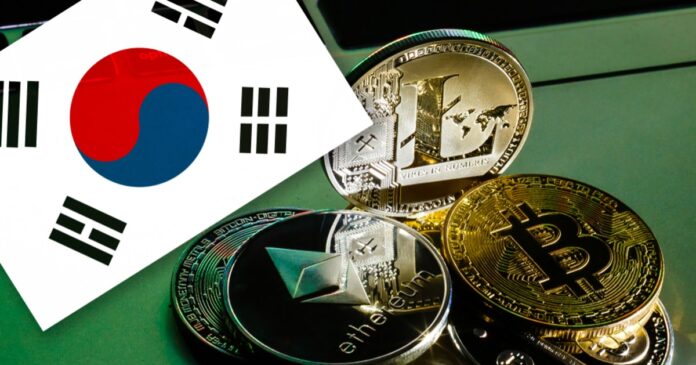South Korea’s Presidential Office has taken a proactive stance regarding the trading of Bitcoin exchange-traded funds (ETFs). This development emerges just a week after the Financial Services Commission (FSC), the nation’s principal financial regulator, warned against the trading of U.S.-based spot Bitcoin ETFs.
The Office of the President of the Republic of Korea, also known as the Yongsan Presidential Office, has urged the FSC to reconsider its position. Sung Tae-yoon, the head of the presidential policy office, stated, “We are trying to make appropriate changes to the legal system of our country or to consider whether what happens abroad can be accepted in our country.” This statement reflects a willingness to adapt the nation’s legal framework in response to international financial developments, particularly in the realm of cryptocurrencies.
The FSC’s initial warning on January 12, suggesting that trading or brokering overseas-listed spot Bitcoin ETFs might violate the Capital Markets Act, led to major securities firms in South Korea suspending trading of these ETFs. However, the recent statement from the Presidential Office indicates a potential shift in policy direction. The FSC acknowledged that cryptocurrency regulation is an evolving field and that its policies should be reviewed continuously as global markets develop.
This reconsideration by the Presidential Office also aligns with broader trends in the region. While South Korea is reassessing its approach to Bitcoin ETFs, other Asian countries like Singapore and Thailand have expressed reluctance to adopt them. In contrast, Hong Kong is emerging as a potential hub for these financial instruments, with several fund managers showing interest in launching spot crypto ETFs in the city.
This development in South Korea’s stance towards Bitcoin ETFs highlights the dynamic and evolving nature of cryptocurrency regulation globally. The government’s consideration of foreign affairs in local regulations indicates its willingness to adapt to changing financial landscapes, potentially embracing digital assets as a legitimate investment option. However, the varied approaches within Asia show that each country is navigating the cryptocurrency landscape differently, considering unique regulatory environments and market conditions.
In addition to the Bitcoin ETF discussions, South Korea’s Financial Intelligence Unit (FIU) is reportedly planning to introduce new regulations around digital asset mixing services. These services help maintain privacy and reduce traceability of funds across multiple chains, but they also raise concerns about money laundering. The FIU’s move follows U.S. sanctions against crypto mixers and aims to counter illegal money laundering operations.
Image source: Shutterstock
Credit: Source link






















 Bitcoin
Bitcoin  Ethereum
Ethereum  Tether
Tether  Solana
Solana  XRP
XRP  Dogecoin
Dogecoin  USDC
USDC  Lido Staked Ether
Lido Staked Ether  Cardano
Cardano  TRON
TRON  Avalanche
Avalanche  Shiba Inu
Shiba Inu  Wrapped stETH
Wrapped stETH  Wrapped Bitcoin
Wrapped Bitcoin  Toncoin
Toncoin  Sui
Sui  WETH
WETH  Bitcoin Cash
Bitcoin Cash  Chainlink
Chainlink  Pepe
Pepe  Polkadot
Polkadot  LEO Token
LEO Token  Stellar
Stellar  NEAR Protocol
NEAR Protocol  Litecoin
Litecoin  Aptos
Aptos  Wrapped eETH
Wrapped eETH  Uniswap
Uniswap  USDS
USDS  Cronos
Cronos  Hedera
Hedera  Internet Computer
Internet Computer  Ethereum Classic
Ethereum Classic  Bonk
Bonk  Bittensor
Bittensor  Render
Render  Ethena USDe
Ethena USDe  POL (ex-MATIC)
POL (ex-MATIC)  WhiteBIT Coin
WhiteBIT Coin  Dai
Dai  MANTRA
MANTRA  Artificial Superintelligence Alliance
Artificial Superintelligence Alliance  Arbitrum
Arbitrum  dogwifhat
dogwifhat  Monero
Monero  Stacks
Stacks  Filecoin
Filecoin  OKB
OKB 
